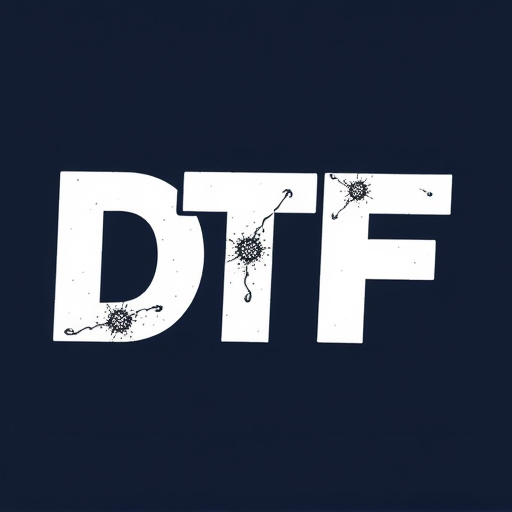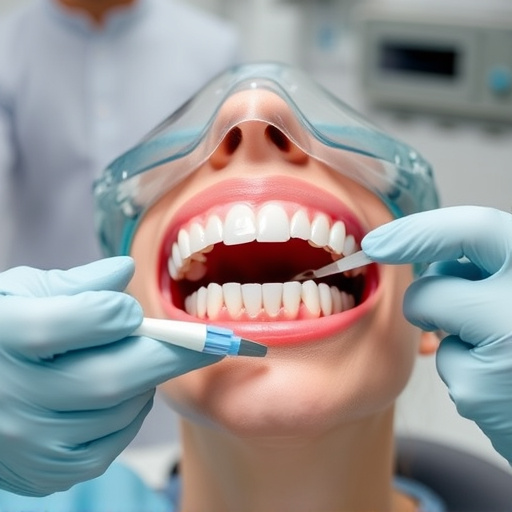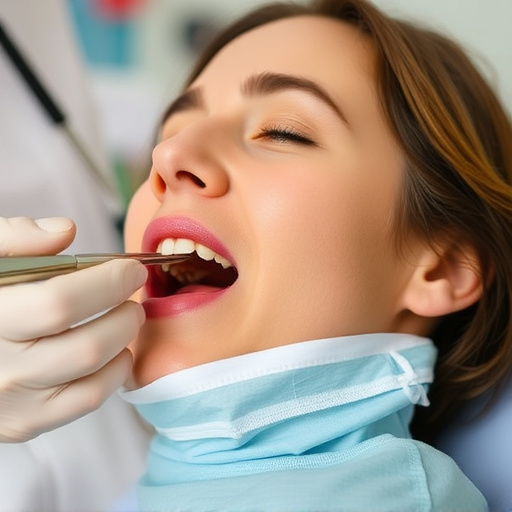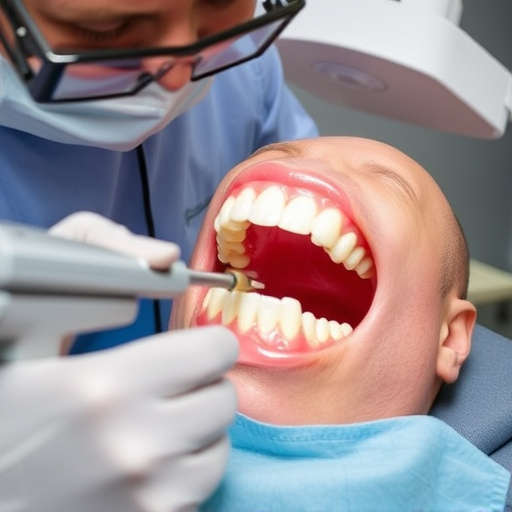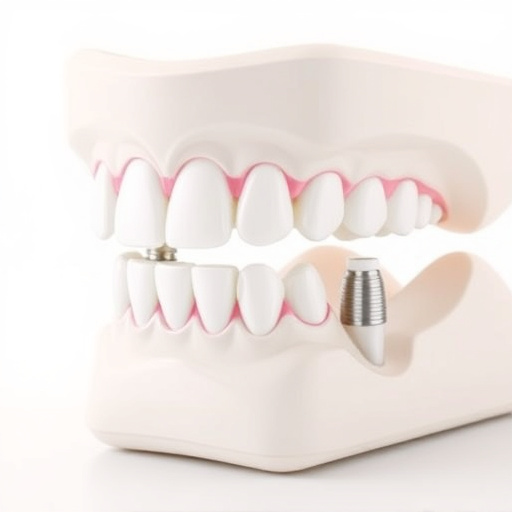Oral cancer, though less common, poses a significant threat due to its aggressive nature. Regular oral cancer screenings by dental professionals are crucial for early detection, as they can identify unusual lesions or abnormalities. Advanced dentistry services, such as restorative dentistry and dental implants, offer effective solutions for restoration after treatment. Integrating dental crowns, clear aligners, and routine screenings promotes proactive prevention and improves outcomes when detected early. Early intervention through emergency dental care services significantly enhances cure rates while reducing costs and invasiveness.
Oral cancer, often overlooked, can be a deadly disease if not caught early. Oral cancer screening plays a vital role in identifying hidden risks before they become life-threatening. This comprehensive guide explores the importance of early detection, delving into the risk factors associated with oral cancer and how screenings can help. By understanding these factors, individuals can take proactive measures to protect their health, ultimately leading to better outcomes. Discover the transformative power of oral cancer screening in saving lives.
- Understanding Oral Cancer: Risk Factors and Early Detection
- The Role of Screening in Uncovering Hidden Dangers
- Benefits of Early Intervention for Better Outcomes
Understanding Oral Cancer: Risk Factors and Early Detection
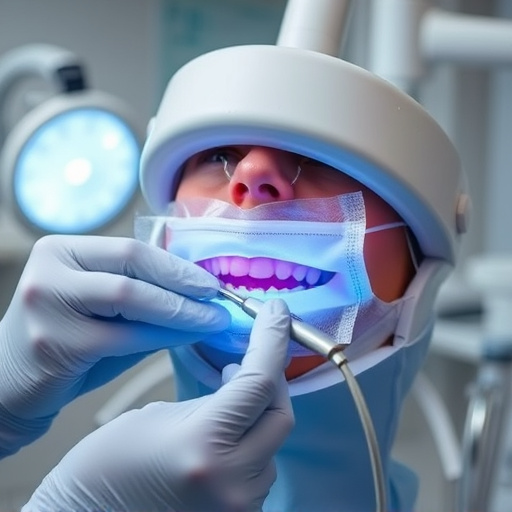
Oral cancer, though less common compared to other forms, is a serious concern due to its potential for aggressive spread. Understanding the risk factors associated with oral cancer is paramount in early detection and successful treatment. Risk factors include persistent tobacco use, excessive alcohol consumption, poor dietary habits, and a history of previous head or neck cancer. Age is also a significant factor, as the risk increases with age, typically affecting those over 40 years old.
Regular oral cancer screenings play a pivotal role in identifying these risk factors early on. During a routine check-up, dental professionals can perform a comprehensive examination, detecting any unusual lesions or abnormalities in the mouth. Early detection is crucial because it allows for prompt intervention and treatment, potentially saving lives. Additionally, advanced dentistry services like restorative dentistry and dental implants can offer effective solutions to address oral cancer’s impact on one’s smile and overall health.
The Role of Screening in Uncovering Hidden Dangers
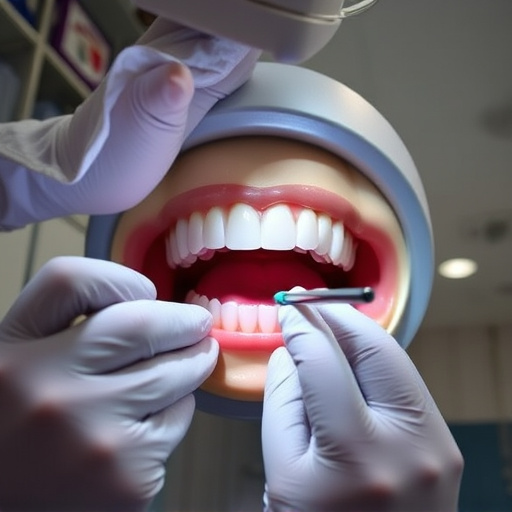
Oral cancer screening plays a pivotal role in modern dentistry, serving as a vigilant guard against hidden dangers within the mouth. It’s not just about spotting visible tumors; it involves a meticulous process of examination that can uncover early signs of oral cancer long before they become apparent to the naked eye. This proactive approach is crucial because early detection significantly improves treatment outcomes and survival rates.
During routine oral exams, dentists use specialized tools and techniques to assess various risk factors associated with oral cancer. They look for unusual lesions, red or white patches in the mouth, and any abnormal swelling or lumps. Additionally, professionals can utilize advanced technologies like VELscope and oral cancer lighting systems to visualize potential changes beneath the surface. By incorporating dental crowns, clear aligners, and regular screenings into a comprehensive oral health regimen, individuals can ensure that any suspicious activities are promptly addressed, enabling effective prevention and treatment strategies.
Benefits of Early Intervention for Better Outcomes
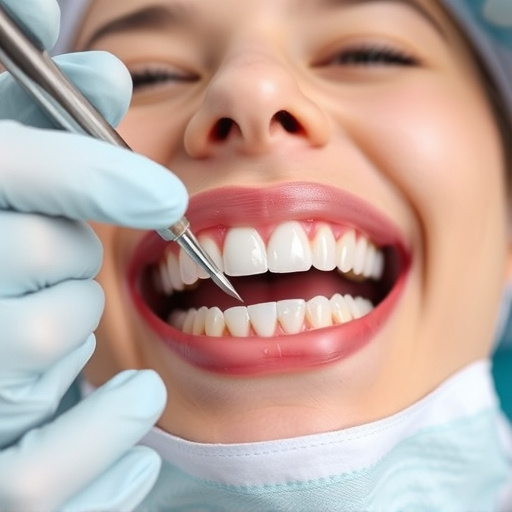
Early intervention is a cornerstone of successful oral cancer treatment, and regular oral cancer screening plays a pivotal role in this process. When detected at an early stage, oral cancer offers patients a better chance of a complete cure with minimal scarring or disfigurement. The benefits extend beyond individual health; early identification can also reduce the cost of treatment and lead to less invasive procedures. This is particularly crucial as oral cancer, if left undetected, can spread to other parts of the body, complicating treatment significantly.
A simple oral cancer screening by a family dentistry professional can reveal subtle changes in the mouth that may indicate risk factors. These screenings are non-invasive and quick, often involving visual inspection and tactile examination. By catching potential issues early, dentists can advise patients on appropriate actions, which might include improved oral hygiene practices or even dental bonding to repair damaged areas. In cases where oral cancer is suspected, emergency dental care services can provide prompt attention and help manage symptoms until a definitive diagnosis is made.
Oral cancer screening is a powerful tool that plays a pivotal role in early detection, enabling healthcare professionals to identify hidden risk factors. By incorporating this simple yet effective practice into routine check-ups, we can significantly enhance outcomes for patients at risk. Early intervention through oral cancer screening is key to ensuring better health and peace of mind for individuals concerned, ultimately contributing to a healthier and more aware community.


